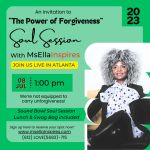The Inverse Relationship Between Habits and Willpower
The Inverse Relationship Between Habits and Will power
Why willpower is hard Part 1
Willpower is a limited resource. It's like a muscle in that way: it can be depleted by use, but it will also grow stronger with exercise. If you're trying to resist temptation and your willpower gives out, don't worry—it'll come back if you give it time to recover.
When we're making decisions throughout the day, our willpower gets drained slowly but steadily; every choice we make requires some effort from our brains. That process also happens when we resist temptation—and once again, there are only so many times a person can do this before they reach their limit and give in to the candy bar or cigarette or whatever else they were resisting.
Choosing what to eat for dinner may seem like an easy decision compared with resisting those cookies after dinner; however, both require energy from your brain at different times during the day (and night). When we decide on something as simple as whether or not we want chocolate cake for dessert tonight, our brains must take into account how much sugar is already inside us along with any other factors associated with eating things made primarily out of flour: whether they're fresh baked at home or store-bought ones found near checkout stands; whether they contain dairy products such as milk or cream cheese; etcetera! These types of choices take mental effort over time because most people don't think about their food choices very often unless there's something special going on (like visiting family members).
How habits work
Habits are formed through the same process as addictions and learning. In fact, it's not too far off from conditioning a dog to salivate at a particular sound by feeding it when that sound occurs (the cue) or rewarding your pup with food whenever he hears the cue (the reward). Whether you're teaching yourself to play guitar, or trying to stop biting your nails after every meal—either way you'll have to associate a particular action with its reward. Once this association is made, your brain will begin looking for ways to make sure that reward happens again. So if you want to stay on top of your game when it comes time for dessert and coffee at Starbucks, consider putting out those fingers so they can get their fix!
How to use habits to help you
So how can you use habits to help yourself? Well, the first step is to figure out what you want to accomplish and then make a list of habits that will get there.
For example, if your goal is to start meditating every day and eating healthier meals during dinner, here are some habits that might help:
- Set an alarm on your phone or computer at 8 am every morning and go sit in a quiet room for 15 minutes before work starts.
- Make sure there's healthy food ready for dinner by 3 pm each day so it doesn't get forgotten about until 11 pm when everyone's starving and tired from being out all day.
Habit-forming is a great way to make good decisions without depleting your willpower
So how can you use habits to your advantage?
- To help you make good decisions without depleting your willpower.
- To break bad habits.
- To form good ones.
Conclusion
The key takeaway is that willpower isn't a finite resource. You can expend it all on one thing, and then use it again later in a completely different context. In fact, using up your willpower in one area will actually give you more mental resources for making good decisions in another area of life, like eating better or exercising more regularly.
So next time someone asks how they can improve their willpower, don't tell them to try harder—instead, suggest they focus on building up their habits instead!


